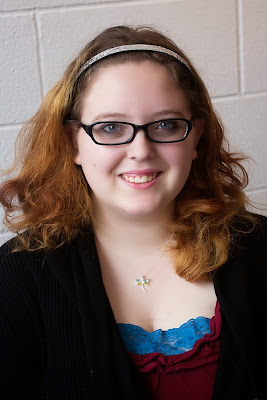 |
| Mitchell Schuh: VPA alumnus in Audio Production and Technology |
1. Tell me about your work since graduating from Tech.
My career has taken me through multiple jobs (and many, many more opportunities) that have challenged me and been on the edge of our industries expectations for technology and integration. I’ve worked with Ken in the Middle East (with slightly different experiences and projects), have worked in Morocco, South Korea, Montreal, and all over the US (NYC, New Jersey, Baltimore, Boston, Orlando, Dallas, LA, Seattle, Detroit). My work centers around control systems for entertainment. This translates to me using my background in audio, theater, and engineering to design systems (what hardware, how to connect it) and program the brain that makes all of the subcomponents talk to each other. An example of this would be that when attending a museum, you go up to an exhibit and push a button. That button is connected to a system that controls what that exhibit will do and how it will react. This idea scales up to management of the equipment (starting up in the morning, shutting down at night, notifying of failures, etc) as well as very, very large scale systems. We (http://www.smart-monkeys.com) are known for our large scale video wall playback systems so I’m specializing in that even more, although the techniques and ideas are mostly the same.
Some of the projects that I was lead control systems designer and programmer:
http://www.smart-monkeys.com/lax-new-tbit
http://www.smart-monkeys.com/universals-superstar
New York Stock Exchange VIP Entrance and Trading floor video system, Downtown Manhattan, NYC
Bain Capital lobby, Boston, MA
For McHenry National Museum, Baltimore, MD
2. Why did you choose to major in Audio Production Technology at Tech?
I have always been drawn to the intersection of the technical and creative aspects of sound and show systems. To be able to pursue a degree with the rigors of an engineering background yet still maintain the nuance that resides in any creative process was a perfect fit for my abilities and desires.
Also, the winter. :)
3. What is the most important thing you learned while at Tech?
I was involved with many, many different student organizations including directing the Pep Band, managing Sound and Lighting Services, on the Rozsa Tech Crew, and other smaller ensembles and groups. All of these, paired with the classroom and lab experiences of the program, taught me how to interact with various groups. It is critically important to be able to translate different people's intentions to other parties in almost all aspects of what I do on a daily basis.
4. What inspires you?
One of my projects, the Universal SuperStar Parade, includes many favorite children’s stories (Despicable Me, Sponge Bob, Hop, and Dora the Explorer). Almost every opportunity I get, I’ll watch the children’s reactions to seeing their favorite TV star riding past them. The excitement that they express from seeing something that I put so much effort into makes every minute of hard work worth it. In general, seeing people use and enjoy my work. It’s the same feeling that creative people get upon seeing people enjoy their music or their art.
6. What is the most amazing thing you have done since graduating?
By far, the new Tom Bradley International Terminal at LAX.
It features some of the most integrated and largest video walls in the world with a deployment of tons of new technology for our field. The primary goal of the system is to have as low of downtime as possible due to it being very, very high priced advertising. Because of this, we can literally lose power to half of the system and everything will continue to operate normally. It’s also absolutely massive. Over 1.5 olympic sized swimming pools of video screen LEDs and a video playback system that is larger and more complex than most TV stations.
7. What would be your advice to students choosing to major in Sound Design or Audio Production Technology at Michigan Tech?
Don’t be afraid to shape your own future. Take the courses, choose the major that will help you get to your goal even if it’s not exactly what the ‘normal’ is.





